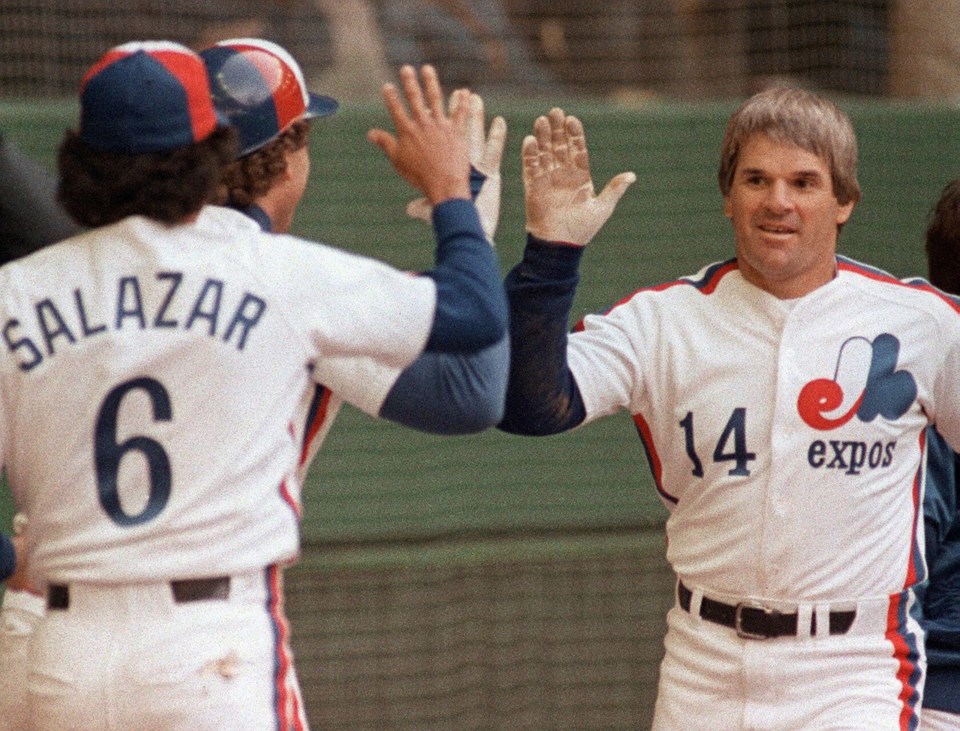The late Pete Rose wasn't with the Expos for long, but his brief presence provided Montreal fans with a historic moment.
Rose was pronounced dead at 83 years old on Monday, with the cause of death yet to be determined.
He was a 17-time all-star, won National League MVP in 1973 and three World Series titles. Rose holds the major league record for hits (4,256), games played (3,562) and plate appearances (15,890).
He signed a one-year contract with the Expos for the 1984 season, his 22nd in Major League Baseball, after being released by the Philadelphia Phillies.
At 43 years old, Rose played 95 games in Montreal, collecting 72 hits and 23 RBIs with a .259 batting average.
One of those hits, against Philadelphia on April 13, 1984, marked his 4,000th career hit, making him just the second player to reach the milestone alongside Ty Cobb.
"He came on the verge of his 4,000th hit, so it was a big deal and John McHale, who was the president and GM of the Expos understood what his presence would mean," said former Expos PR chief Richard Griffin. "He reported to spring training already a superstar.
"I think it's underestimated how big a clubhouse presence he was with his teammates. There's thoughts out there that he wasn't popular with teammates and wasn't a good guy. He was rough around the edges but he was so admired inside that clubhouse."
Rose was traded back to the Cincinnati Reds in August, becoming player-manager and replacing the fired Vern Rapp, in exchange for a minor leaguer.
Rose spent the first 16 years in Cincinnati as a key cog in the Big Red Machine and returned to spend the final two-plus seasons of his playing career there.
"It was a special year because of the 4,000th hit, right?" said Perry Gee, an Expos memorabilia collector and president of Expos Fest, which hosts celebrity galas and fundraisers for the Montreal Children's Hospital.
"From that year, I got his game-used jersey, pants, cap and I believe to be the last bat he ever used as a Montreal Expo before he got traded. He only played here for a short time but I think he has his place here in Expos history."
From Griffin's account, Rose never put up a front regarding his play or who he was.
"He grew up a tough street kid in Cincinnati and he never changed from that. And that's the way he played the game," Griffin said. "He never apologized for running over Ray Fosse and ruining his career in the all-star game, he never really apologized for his gambling, and I don't think he's apologized for anything he's done in the game.
"It's a flaw, but it's also who Pete Rose is, and on the field of play, he had to be admired for that."
Rose's legacy suffered when he received a lifetime ban from baseball in 1989 for gambling on games while managing the Reds, a decision that led to his ineligibility for induction into the Hall of Fame.
Gee, who got to know Rose through fundraisers, said what unfolded "hurt a bit because I know Pete was a flawed guy."
However, Gee noted that Rose was always kind to attendees at Expos Fest, which featured former Expos at events, including signings and an annual gala
"I just saw Pete last month in New York, we did a signing with him. … He's always helped us, we've done a few signings with him, he's always been polite," Gee said. "He remembered everything from his days in Montreal.
"He used to joke that he used to go to Blue Bonnets (raceway) while he was here because that was the only form of gambling in Montreal back in '84."
— With files from Gregory Strong and The Associated Press.
This report by The Canadian Press was first published Oct. 1, 2024.
Abdulhamid Ibrahim, The Canadian Press


